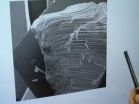(Press-News.org) PRINCETON, N.J.—Stories about wartime atrocities and torture methods, like waterboarding and beatings, often include justifications – despite whether the rationale is legitimate.
Now, a study by Princeton University's Woodrow Wilson School shows how those justifications actually creep into people's memories of war, excusing the actions of their side. The researchers report in Psychological Science shows how Americans' motivation to remember information that absolves American soldiers of atrocities alters their memories.
"People are motivated to remember information that morally disengages them," said lead author Alin Coman, an assistant professor of psychology and public affairs at the Wilson School. "By doing so, they can absolve themselves or their group from responsibility."
For the study, Coman and his collaborators – Charles Stone from John Jay College of Criminal Justice and Emanuele Castano and William Hirst from The New School for Social Research – recruited 72 participants: Fifty-six percent were female, 44 percent were male and all participants identified as European-American.
Experiments were conducted in two parts. First, in the study phase, participants were asked to read four, 160-word stories about situations that soldiers and fighters were exposed to in Iraq and Afghanistan. Each story contained both atrocities committed by the soldiers and the justifications for those actions. All stories were fictitious but based on true media reports of atrocities that had occurred in Iraq and Afghanistan. Each tale contained "critical items," which included details of the atrocities committed by soldiers and the justifications for these atrocities, and "filler facts," such as the soldiers' fictitious names and hometowns.
Two versions of each story were created – one in which the perpetrator was an American soldier (ex. "Jim Green") and another in which the perpetrator was an Afghan soldier (ex. "Jawid Gawri). Half of the participants read the American version of the story while the other half read the Afghan version. The order of the stories varied among participants, and they had 90 seconds to read each tale. One story included a soldier who hit a prisoner repeatedly with a belt because the prisoner threw food in the cafeteria. Another story depicted a soldier submerging a prisoner's head in water because he was unwilling to speak about an upcoming attack.
Next, in the practice phase, participants watched a video of either a male or female actor selectively retelling only the atrocities from two of the initially studied stories. However, this time, the actors left out the justifications. Coman and his collaborators designed the experiment this way to analyze retrieval-induced forgetting, a phenomenon in which the brain filters out some memories and holds on to others, altering the initially stored memory of an event.
"When we retrieve memories we usually don't remember everything we experience," said Coman. "Rather, we selectively retrieve information from memory. The simple act of retrieving memories reinforces those memories and makes them more likely to be remembered in the future. But, this comes at a cost – important information related to these memories can be lost later."
After the second phase was completed, participants then performed what Coman calls a "distractor task," which included filling out a basic questionnaire. This exercise mimicked the natural delay between hearing a story and retelling it later. Participants were then isolated in a room and asked to write down everything they could about the original four stories they read. To jog their memories, participants were given cue words like "Jim Green" and "robbery."
The recall data was then coded based on what participants remembered, and the researchers analyzed and computed the recall scores for the atrocities, justifications and filler facts. Through statistical analyses, they found that atrocities mentioned by the actors were more likely to be remembered by the participants, regardless of whether the perpetrator was American or Afghan. However, they also found that participants were more likely to remember the justifications for atrocities committed by Americans soldiers than for atrocities committed by the Afghan soldiers.
"As an American participant, you would like to justify those atrocities and so you say, 'Yes, those happened but they happened for a reason.' So, as you're listening to the information presented by the speaker in the video, these motivational forces are driving you to retrieve justifications for the atrocities committed by American soldiers," Coman said.
The findings have implications for both policy and journalism, Coman said.
"In terms of policy, it's important to acknowledge that the way you remember the past is guiding your decisions, the way you vote and who you support. While this study didn't analyze political behavior, the general finding could have overtones in the political domain, from political campaigning to ethnic conflict."
"In terms of journalistic reporting, journalists need to decide how to report information from wartime situations," Coman said. "Do they include both atrocities and justifications? How can they better report these situations so they aren't creating conditions for these biases to emerge?"
Coman and his students are currently working on a project investigating the effects of socially shared retrieval-induced forgetting, a phenomenon by which individuals synchronize their memories as a result of the conversations they have with one another. In the current study, Princeton students are listening to other Princeton students – as well as students from Yale – remember stories about their own groups.
INFORMATION:
The paper, "Justifying Atrocities: The Effect of Moral-Disengagement Strategies on Socially Shared Retrieval-Induced Forgetting," was first published online April 18 in Psychological Science. The research was supported by the grant BCS-0819067 from the National Science Foundation.
Justifying wartime atrocities alters memories
2014-05-15
ELSE PRESS RELEASES FROM THIS DATE:
Single episode of binge drinking can adversely affect health according to new UMMS study
2014-05-15
WORCESTER, MA – It only takes one time. That's the message of a new study by scientists at the University of Massachusetts Medical School on binge drinking. Their research found that a single episode of binge drinking can have significant negative health effects resulting in bacteria leaking from the gut, leading to increased levels of toxins in the blood. Published online in PLOS ONE, the study showed that these bacterial toxins, called endotoxins, caused the body to produce immune cells involved in fever, inflammation, and tissue destruction.
"We found that a single ...
Fewer smokers believe e-cigarettes are a safer alternative to cigarettes
2014-05-15
Ann Arbor, MI, May 15, 2014 – E-cigarettes are gaining mainstream attention as a competitor to traditional cigarettes. Researchers from the University of Pennsylvania and the University of Illinois at Urbana-Champaign wanted to examine changes in e-cigarette awareness, how harmful people believe them to be, and if those attitudes have any connection to smoking cessation attempts. They found that while awareness of e-cigarettes has increased significantly, smokers are less inclined to consider them safer than cigarettes. Also, investigators discovered that awareness did ...
Cancer's potential on-off switch
2014-05-15
A team of Boston University School of Medicine (BUSM) researchers have proposed that an "on and off" epigenetic switch could be a common mechanism behind the development of different types of cancer. Epigenetics is the phenomena whereby genetically identical cells express their genes differently, resulting in different physical traits.
Researchers from the Boston University Cancer Center recently published two articles about this in Anticancer Research and Epigenomics.
The current paradigm states that cancer develops from environmental and genetic changes to cancer ...
Significant differences in CVD risk factors between men and women with type 2 diabetes
2014-05-15
New Rochelle, NY, May 15, 2014—Type 2 diabetes greatly increases a person's risk of developing cardiovascular disease (CVD). A new study showing that cardiovascular risk factors such as elevated blood pressure and cholesterol levels differ significantly between men and women is published in Diabetes Technology & Therapeutics (DTT), a peer-reviewed journal from Mary Ann Liebert, Inc., publishers. The article is available free on the DTT website at http://www.liebertpub.com/dtt.
Joni Strom Williams, MD, MPH and coauthors from Medical University of South Carolina and Ralph ...
Richest marine reptile fossil bed along Africa's South Atlantic coast is dated at 71.5 mya
2014-05-15
VIDEO:
A new study uses carbon isotope dating to determine the first precise age for this bed, and ties the western coast of Africa to 30 million years of global geologic...
Click here for more information.
Paleontologists at Southern Methodist University have measured the carbon isotopes in marine fossils to precisely date for the first time 30 million years of sediments along Africa's South Atlantic shoreline.
The researchers matched the pattern of ratios of carbon-13 and ...
The shrinking of Jupiter's Great Red Spot
2014-05-15
Jupiter's trademark Great Red Spot — a swirling storm feature larger than Earth — is shrinking. This downsizing, which is changing the shape of the spot from an oval into a circle, has been known about since the 1930s, but now these striking new NASA/ESA Hubble Space Telescope images capture the spot at a smaller size than ever before.
Jupiter's Great Red Spot is a churning anticyclonic [1]. It shows up in images of the giant planet as a conspicuous deep red eye embedded in swirling layers of pale yellow, orange and white. Winds inside this Jovian storm rage at immense ...
KAIST made great improvements of nanogenerator power efficiency
2014-05-15
NANOGENERATORS are innovative self-powered energy harvesters that convert kinetic energy created from vibrational and mechanical sources into electrical power, removing the need of external circuits or batteries for electronic devices. This innovation is vital in realizing sustainable energy generation in isolated, inaccessible, or indoor environments and even in the human body.
Nanogenerators, a flexible and lightweight energy harvester on a plastic substrate, can scavenge energy from the extremely tiny movements of natural resources and human body such as wind, water ...
Low-dose anticoagulation therapy can be used safely with new design mechanical heart valve
2014-05-15
Beverly, MA, May 15, 2014 – Less aggressive anticoagulation therapy, combined with low-dose aspirin, can be used safely in conjunction with a newer generation mechanical heart valve. These findings from the first phase of a randomized clinical trial are published in The Journal of Thoracic and Cardiovascular Surgery, an official publication of the American Association for Thoracic Surgery.
Patients under 65 years of age requiring heart valve replacement have had to choose between a mechanical valve that may last a lifetime but requires aggressive anti-clotting treatment ...
Effects of alcohol in young binge drinkers predicts future alcoholism
2014-05-15
Heavy social drinkers who report greater stimulation and reward from alcohol are more likely to develop alcohol use disorder over time, report researchers from the University of Chicago, May 15 in the journal Biological Psychiatry. The findings run counter to existing hypotheses that innate tolerance to alcohol drives alcoholism.
In a double-blind, placebo-controlled study, a team led by Andrea King, PhD, professor of psychiatry and behavioral neuroscience at the University of Chicago, analyzed the subjective response of 104 young adult heavy social drinkers to alcohol ...
Visual clue to new Parkinson's Disease therapies
2014-05-15
A biologist and a psychologist at the University of York have joined forces with a drug discovery group at Lundbeck in Denmark to develop a potential route to new therapies for the treatment of Parkinson's Disease (PD).
Dr Chris Elliott, of the Department of Biology, and Dr Alex Wade, of the Department of Psychology, have devised a technique that could both provide an early warning of the disease and result in therapies to mitigate its symptoms.
In research reported in Human Molecular Genetics, they created a more sensitive test which detected neurological changes before ...





